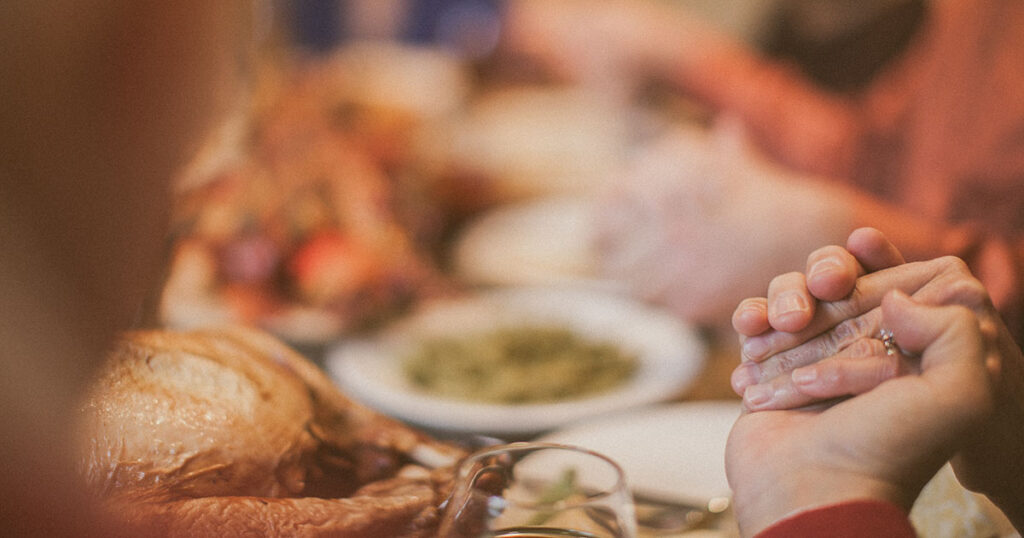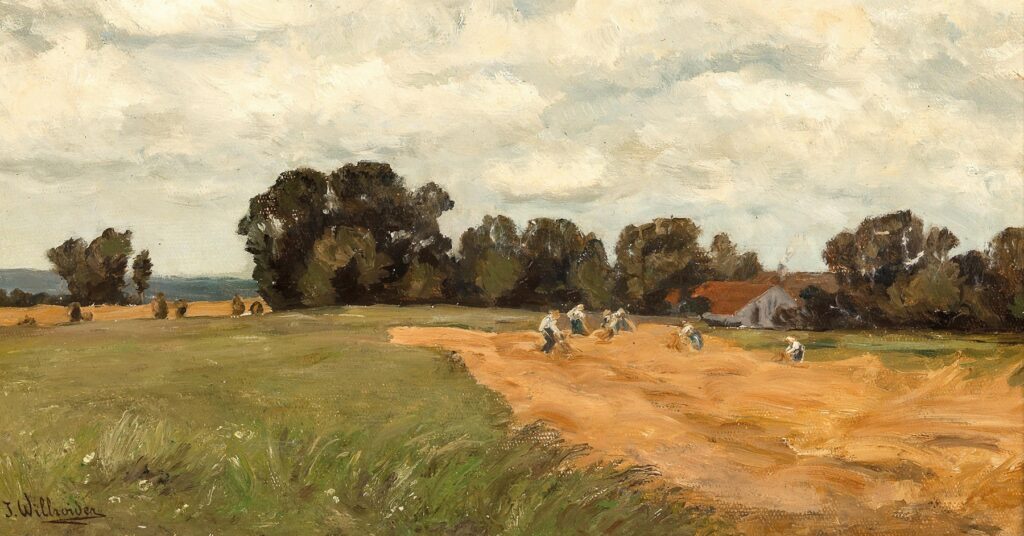Thanksgiving takes a lot of flak these days. Christmas haters are called “Scrooges” or “Grinches,” but haters of Thanksgiving are considered socially conscious and realistic. For many Americans, the fourth Thursday in November is an annoying holiday with racist origins — an excuse to force innocent citizens to gorge on poorly prepared, outdated foods while fraternizing with uncongenial relatives. It is, moreover, a day of hypocritical tension between trite demands to “be grateful” versus a Black Friday rush through the mall. Dismissively labeled “T-day” on social media, Thanksgiving is becoming mere no-man’s-land stuck between the two towers of Halloween and Christmas.
This is a shame. One of the tragedies of the modern era is the way our culture finds it so difficult to rejoice or gather together. Instead, modern Americans report increasing anxiety and loneliness while isolating and polarizing ourselves. Americans do not know how to celebrate Thanksgiving well anymore. No wonder the day has lost its identity.
But for Lutherans, who are blessed with a long tradition of rejoicing, celebrating and gathering together, Thanksgiving is an opportunity. We are old-fashioned enough to recognize the value of old customs and rituals. Hideous green-bean casseroles aside, we can serve our neighbors this November by showing them how to delight in a day like Thanksgiving.
Three reasons the world celebrates Thanksgiving badly
In order to do this, we must first understand why Thanksgiving has become almost offensive to many of our fellow citizens. Within the framework of modern culture, gratitude is dangerous. There are three reasons for this. The first is that we have come to view “privilege” as morally wrong. Anyone blessed with a good income, an influential career, math skills or even a stable family is seen as possessing an unfair advantage over others. Such people are not supposed to be grateful. That would sound like bragging. They are supposed to be troubled or even ashamed. No wonder Americans hesitate to openly appreciate the good things in our lives. We do not want to place ourselves in the category of social oppressors. Socially, it is much more rewarding to be a victim.
Second, we have accepted a false simplification of human life. Just as our culture no longer understands that individuals can obey or submit to others without sacrificing personal identity in the process, we no longer understand that individuals can be grateful without denying the realities of suffering and injustice. Modern culture tells us that preaching gratitude and contentment is the same as pretending that everything is fine. We think we need a constant stream of anger and discontent to motivate us to build a better society. Being thankful sounds weak. Socially, we would rather focus on what is wrong with the world than what is good.
The third reason is that we are hiding from God. As a culture, we want our “higher power” to keep His distance. We want Him to belong to us, not the other way around. We call on Him when we want something, and we believe we fully deserve every good thing He gives to us. A national day of thanksgiving is uncomfortable because by implying that there is a reason for us to be “grateful,” it also implies we should be grateful to someone who exists outside of ourselves. Socially, we do not like the idea that we might owe God anything.
Many of our neighbors find gratitude uncomfortable. It should not scare us Lutherans. We have answers to the world’s misunderstanding of thankfulness. In 1 Thessalonians 4:13, Paul tells his readers that Christians do not “grieve as others do who have no hope.” Similarly, we do not celebrate like those who have no hope. We gather together in a different way.
We are not afraid of privilege. Our vocations are gifts from our Lord, to be used for His glory, and we are freed from the need to belong to any particular caste or category. Nor are we afraid that gratitude will endanger our ability to respond to the brokenness of this world. Like Job or Paul, we can proclaim the goodness of God in even the darkest circumstances because God has already won the victory. We seek to serve and help our neighbors because that is the natural response to knowing how much God has done for us. In addition, we are not afraid to acknowledge the goodness, power and truth of God because we know He has already paid all we owe Him. We are Lutherans, and we are free to eat pumpkin pie in a spirit of thankfulness.
How should we celebrate?
But what if you are a Lutheran who embraces this counter-cultural gratitude, yet does not particularly like the holiday in question? Perhaps your definition of what it means to celebrate Thanksgiving is skewed. The world has reduced the holiday to its most superficial trappings. There is no need for us to embrace gluttony, an artificially rigid menu or long lines on Black Friday. Rather, Thanksgiving focuses us on our relationships with God and others.
As both Scripture and history illustrate, gathering together is a universal human response to the feeling of thankfulness. Even the woman in Jesus’ parable of the lost coin calls her neighbors when she finds her small treasure (Luke 15:9). Gratitude creates community. This is part of the reason Thanksgiving exists as a national holiday. It is fitting that we, in our vocation as citizens, gather with our neighbors and family on a set date — even if those neighbors no longer understand why.
Thanksgiving has always had a civic flavor. It reminds Americans that we should thank God for preserving our country. Unlike the Fourth of July, Thanksgiving inculcates humility, because saying “thank you” is humbling and useful for Americans. Americans across the political spectrum have grown pessimistic about the state of our country. No matter what our civic future looks like, we should still give thanks for God’s goodness.
It may seem odd to respond to the modern-day gloom by gathering around a table for prayer and a generous meal, but it is right to do so. The original Mayflower pilgrims celebrated God’s mercy after losing half their number to exposure and disease. Abraham Lincoln called for a national day of thanksgiving in the middle of a bloody civil war. Thanksgiving is not a smug celebration of a perfect, lollipop world. Rather, it is the response of people who have hope, who neither grieve as the world grieves nor celebrate as the world celebrates.
It is hard for the world to understand this response. The world views gratitude as weak. Murderous dictator Joseph Stalin, in fact, is popularly credited with saying that “gratitude is a sickness suffered by dogs.” Yet God works through weakness. Lutherans do not side with Stalin. We know far too much about the blessed freedom of giving thanks to a good God.
That is why I will be cooking a turkey and an abundance of pies on the fourth Thursday of November. I will not make a green bean casserole. For my family, we connect with other Americans, past and present, over traditional foods. Our menu expresses our happiness as we share a meal together. The foods that suit your family and your table might be different. You might prefer steak. What each of us eats on Thanksgiving is not the point. What matters is that we are grateful, and that we are grateful together.
This Thanksgiving, let us show the world how to celebrate well.






Appreciated reading this article at this particular moment. Our Thanksgiving gathering with friends has been interupted by unexpected physical injuries that are keeping us at home. But, we’ll celebrate with grateful hearts anyway, while eating Southern Mac ‘n Cheese!
( The green bean casserole I made for the gathering will get delivered🤭)
For the record, I like a good green bean casserole!
Nicely done! Thank you for the perspective.
This was a really lovely and helpful article! Thank you for writing it, Mrs. Mussmann! 🙂